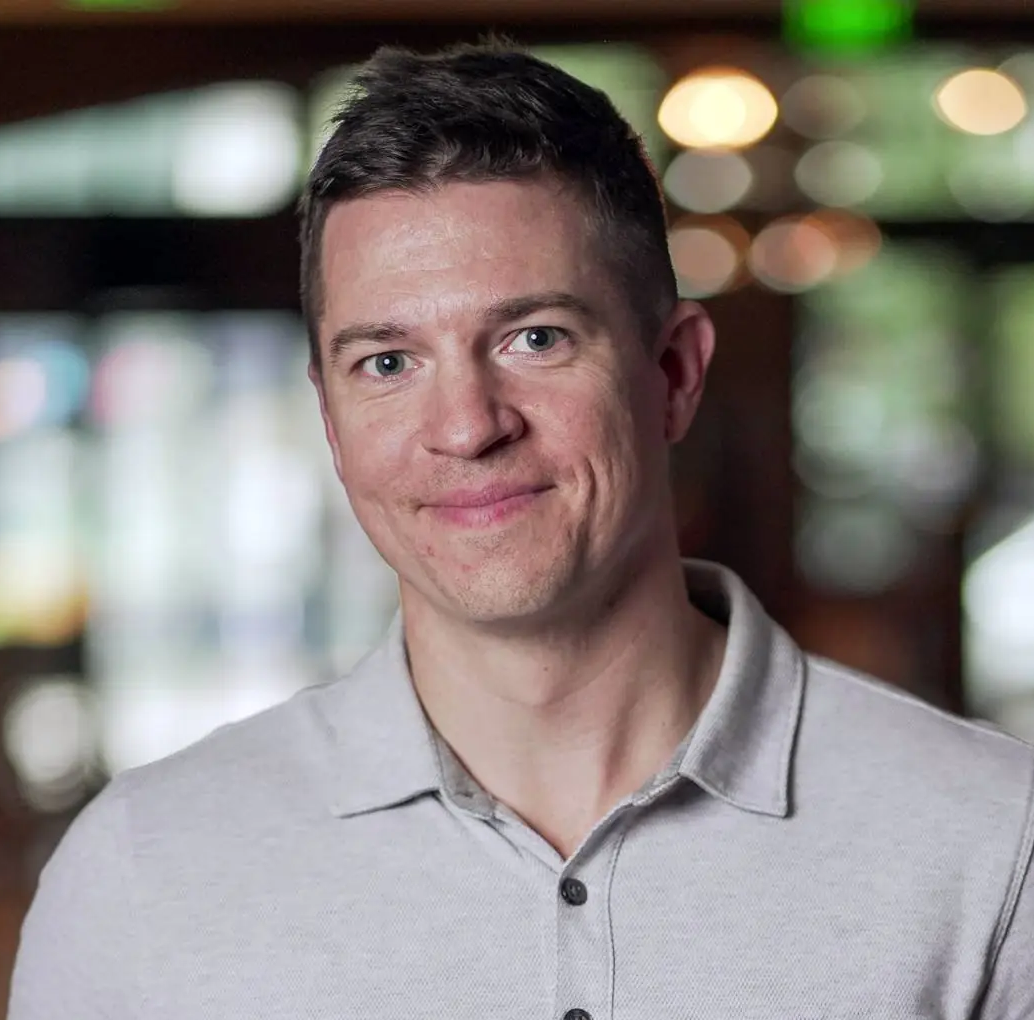“Why should I hire you?”
Anyone who is responsible for bringing on new clients knows about this bone-chilling question. After all, there are a lot of other lawyers who can do what you do, right?
That’s where client success stories come in.
A well-crafted client success story can answer this question before you even speak to a prospective client.
Furthermore, most law firms won’t publish client success stories (or the ones they do publish are so poorly done that their value is near-nothing) making them a differentiating factor that could win over new clients simply by virtue of having done it.
Our clients often express surprise when they have achieved high search rankings for their main keywords and they are getting solid levels of qualified traffic, but they still aren’t signing up quality cases with consistency. We have found that investing in client success stories is an effective way to solve that problem.
I’m going to walk you through how to create compelling legal client success stories that help you earn more of your best clients. Let’s go.
Before you write a word…
The Two Musts for Writing Effective Legal Client Success Stories
I am going to get into the weeds and give you tactical advice for writing, designing, publishing, and distributing your client success stories.
But first, let’s look at what I consider to be the two “must-haves” for writing effective legal client success stories:
- Make sure that you highlight cases and clients that you actually want more of, and;
- Make sure you get consent from the client before writing the client success story.
1. Write About Cases and Clients That You Want More Of
The sure-fire way to make sure your client success stories don’t produce more of the clients you want is to write about cases you don’t actually want.
In his excellent post 3 Steps to Writing Case Studies That Compel Clients to Hire Your Law Firm attorney and entrepreneur Wayne Pollock explains that:
“Compelling case studies are mirrors, not windows[…] When prospective clients learn that another client who’s been in their shoes turned to your firm to help them successfully resolve their legal issues, those prospective clients are going to, naturally, believe your firm can do the same for them. For that reason, your firm’s case studies should strategically spotlight the clients you want to attract.”
This is exceptionally good marketing advice for lawyers. In fact, we just published the results of a focus group that found that specialization is one of the most important factors that folks consider when looking for an attorney.
And what better way to show that you specialize in your prospective client’s matter than by telling them a story about someone you helped who was faced with an issue similar to theirs?
At Juris Digital we are always asking our clients one simple question: What does your ideal client/case look like? We ask this question because we need to know the answer to create content marketing strategies that actually produce the sort of leads our clients want.
Even if you are a young lawyer and perhaps you’ve only worked on a single case that you consider to be your ideal case, you ought to write your client success story about that case, rather than focusing on cases that are a dime a dozen (even if that’s where the bulk of your experience lies).
2. Get consent and buy-in from your client to tell their story
It’s crucial that you get consent from your client before telling their story. It’s important from an ethical standpoint, obviously – you don’t want to run afoul of the rules.
But getting consent and buy-in from your client is equally important for the efficacy of your final product. In the absence of quotes and anecdotes that come directly from the client, your client success story will fall flat.
A Step-by-Step Process for Creating Effective Client Success Stories for Your Law Firm

From this point forward we are going to assume that you have already chosen the right clients/cases to highlight and that you have received consent and buy-in from your client to tell their story.
Here’s how to take action and produce and distribute effective legal client success stories.
Choose a Single, Concise Story to Tell
You have chosen which client and case to spotlight. Now you need to find the right angle – you need to choose a single story or narrative that you want to tell.
This is important because the impact of your client’s success story will largely depend on people being able to follow the story.
It may well be the case that your representation of your client was complex and that you achieved wins and overcame adversity at many points along the way. But your client success story isn’t a novel. Don’t confuse your potential clients by telling them 10 different narratives.
Instead, choose the one story you want to tell and hammer it home. This will make for a more compelling client success story that is accessible and comprehensible by your potential clients.
Interview the Client (Before/During/After)
You’ve reached out to your client to get them on board. Now you need to collect interview responses from them that will enrich the story you are telling, and lend the social proof required to sway potential new clients in your direction.
Keep in mind the primary goal of the interview: To collect compelling quotes and anecdotes from the client which enhance the credibility and the ethos of the story.
The key to asking effective interview questions is to keep in mind the concept before, during, after. That is:
- What were you going through before you hired our law firm?
- What was your experience like while you were working with our law firm? (and why did you chose us?)
- How has your life changed (improved) since your case was resolved?
The specific questions you ask the client should be crafted on a case-by-case basis and should be informed by the details of their actual experience and by the story that you are telling.
In general, I suggest that you limit your interview to 10 to 15 questions. This is a number that we have found will get you all of the detail you need without overwhelming the client and taking up too much of their time.
Here are 10 examples of client success story interview questions to help get you started.
Before working with us
- Tell me what happened to bring about the legal issue that you were facing?
- In what ways was the legal issue impacting your life?
- When you were faced with your legal issue, what specific outcome were you after?
- What (if anything) did you try to resolve your issue before turning to us for help?
During your work with us
- How did you find us?
- What were your first impressions of working with us?
- What made you confident that you made the right decision by hiring our law firm?
- What memory stands out most in your mind about your experience working with us?
After working with us
- How has your life changed since your case was resolved?
- What has that change meant for you?
- What advice would you give someone else who faces the same legal issue that you faced?
To be clear, the interview questions that you ask should not be set in stone. Rather, they should be adjusted based on the specifics of each client story that you are telling. However, if you follow the before/during/after format, and ask specific questions that evoke emotional and truthful responses, you’ll be on the right track.
Draft the Narrative
You’ve completed the client interview and you have some terrific pull quotes to enhance your story. Now it’s time to draft your narrative. There will be two parts involved here:
- Drafting the narrative of the story, and;
- Incorporating the quotes and insights gained during the client interview.
Write the Story with Your Client as the Hero
As with so many things, there is no one correct way to write up your client’s story. However, there is one sure-fire way to get it wrong, and that is to make yourself/your law firm the hero of the story, rather than your client.
This may feel counterintuitive. After all, the point of the client success story is to show how awesome you are, right?

The point is to paint a picture for potential new clients of what their life can look like if they hire you. And the best way to do that is to make your client the hero of the story.
Take the following examples:
When Walter White was diagnosed with lung cancer his entire life was turned upside down. He was lost, making destructive choices, and in a constant state of anxiety over how his family would get by if he were to die. In his desperation, he called our law firm, and that decision saved his life. Saul Goodman, Attorney at Law, began investigating the cause of Walt’s lung cancer, and we discovered that the car wash where Walter worked was using a specific, illegal chemical that caused his cancer. Through our hard work and dedication to Walter, we were able to prove that A+ Car Wash was liable for Walter’s cancer. We convinced a jury to award Walter $757,000 in damages; the precise amount he needed to ensure that his family would avoid destitution upon his passing. We are so proud of our work to help this helpless man and his family.
A bit heavy-handed, but you get the point. Here, the law firm paints itself as the hero that saves the day for the client. Your potential new clients aren’t going to be nearly as likely to be inspired to action with this sort of narrative. Why? Because they see themselves reflected in the story you tell, and they don’t want to be seen as the helpless victim.
Let’s try again.
When Walter White was diagnosed with lung cancer his entire life was turned upside down. In the period that followed, he fought cancer with stoic determination, and he made incredible sacrifices to ensure that his family would be able to get by financially, should he succumb. Eventually, Walter decided that he needed a helping hand in his fight to secure his family’s financial future. He felt that there was something amiss with his cancer diagnosis, and he reached out to our law firm to share his thoughts. We listened to Walter’s story and worked with him to investigate the car wash where Walter worked. Together, we found that the car wash was using a specific, illegal chemical that caused his cancer. Because of Walter’s tenacious determination to succeed, and the opportunity he gave us to deploy our experience and insight on his behalf, we were able to prove that A+ Car Wash was liable for Walter’s cancer. Working together we were able to convince a jury to award Walter $757,000 in damages, the precise amount he needed to ensure that his family would avoid destitution upon his passing. We are so proud to have had the opportunity to fight alongside Walter.
In this version, the client is clearly the hero. The quality of the representation by the law firm is no less evident than in the braggy version, but this narrative will be far more compelling to potential new clients because it makes them feel like they will play a leading role in their own story.
Incorporating the Client’s Interview Responses
You went to all of the trouble to craft great interview questions and get responses from the client. Now it’s time to extract the golden nuggets from the interview and use them to make your story shine.
First and foremost spend some time listening to the client’s interview responses. Internalize their emotions and their words to guide you as you craft the narrative of their story.
Then, look for opportunities to use call and response to highlight the client’s most compelling quotes, while driving the story forward. For example:
- Call: When Walter White was diagnosed with lung cancer his entire life was turned upside down. In the period that followed, he fought cancer with stoic determination, and he made incredible sacrifices to ensure that his family would be able to get by financially, should he succumb.
- Response: “When the doctor told me the news, it was like everything else faded to the background. The cancer was all that remained. I couldn’t process it. I couldn’t understand it.”
Write the Headline
The most important attribute of your headline is specificity. The headline needs to convey exactly what the story is about because your potential new clients what to know that your experience is relevant to their situation.
As with the narrative, you also want to make the headline personal and you want the client to be the hero.
Here are a few examples:
Walter White – Father, Husband, and Teacher – Gets Justice After Being Exposed to Cancer-Causing Chemicals
How We Helped a Father, Husband and Teacher Secure His Family’s Financial Future Following Cancer Diagnosis
How a Father, Husband, Teacher and Cancer Survivor Secured His Family’s Financial Future with the Help of Our Firm
In each of these examples, the most important details of the case are made plain, and the client sits at the center of the narrative, as the winner.
Publish and Repurpose
The hard part is over! You’ve created a compelling client success story that is going to help you sign more of your best cases. Now, it’s time to get that story published.
The first place to publish the story is on your website. It’s fine to simply post it as a blog post, though if you are working with a digital marketing agency, they may have some more specific ideas in terms of how to organize the story within the hierarchy of your site.
In addition to the page or blog post on your site, you’ll also want to repurpose the content into a variety of formats such as:
- Graphics with pull quotes
- Audiograms
- Downloadable PDF
- Slide deck
Once your client success story is published, it’s time to promote and distribute.
Promote and Distribute
First and foremost, you’ll want to link to the client success story prominently from relevant, traffic-generating pages on your website. For instance, if your client success story is about a case involving exposure to toxic chemicals you’d want to link to it from other pages on your site that address this topic (a practice area page, blog posts, FAQs, etc.)
You’ll also want to link to the client success story from the bio page of the attorneys who worked on the case. This way anyone who is researching specific attorneys will be able to see a real-world example of their work.
Next, share the client success story widely on all of your social media profiles. Even if you don’t have a big following, that’s ok. Simply by having your case study posted to your channels, you’ll improve your digital footprint and maximize the odds that anyone who is investigating your firm on these channels will be swayed to contact you about their case.
Another great way to distribute your client success story is to feature it in your email newsletter (if you have one).
Finally, make sure that you are sharing the client success story with your prospective clients directly. If you are in talks with a potential client, but they haven’t yet signed up with you, shoot them an email with a link to the client success story (or attach a PDF). This will reinforce to them that you have experience in their case type and that you can get them the outcome they are after.
Go forth and get more of your best client with the help of client success stories
A well-crafted client success story can transform a lurker on your law firm’s website into one of your best clients. If you are already investing in getting eyeballs on your website, an investment in client success stories can push your return to the next level by drastically improving your ability to convince your best clients that you are the right firm to help them.
Interested in creating client success stories for your firm? Let’s talk about it. Reach out to discuss how we can help.
